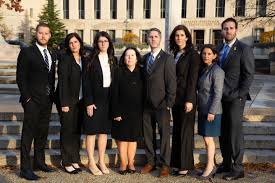The Beggs & Lane Blog
Employee Retention Credit
The IRS has provided advice for employers on how to claim an employee retention credit on quarterly Form 941 under the coronavirus stimulus legislation. The refundable tax credit is equal to 50% of qualified wages paid to employees after March 12, 2020, and before January 1, 2021. If an employer paid any qualified wages between March 13, 2020, and March 31, 2020, inclusive, include 50% of those wages together with 50% of any qualified wages paid during the second quarter of 2020 on the second quarter Form 941, 941-SS, or 941-PR to claim the employee retention credit, the IRS stated. [...]
Families First Coronavirus Response Act (the “Families First Act”)
On Wednesday, March 18, 2020, Congress enacted a law that applies to most employers with fewer than 500 employees requiring paid, protected leave time for employees needing time off for specific reasons related to the coronavirus pandemic. This law is called the Families First Coronavirus Response Act (the “Families First Act”). The following Q&A on the paid leave provisions of the Families First Act. There is still some uncertainty with such a brand new law, so this preliminary review may be subject to change. Q: Does this law apply to my company? Generally, this law applies to employers with fewer [...]
Beggs & Lane Seeks Justice For America’s Longest Held Hostage
Robert Levinson is America’s longest held hostage. He has been held by the Iranian government for almost 13 years. Iran has held Mr. Levinson incommunicado during that time, allowing no contact with his family or anyone outside of his jailers. Iranian officials have publicly denied any knowledge of Mr. Levinson’s whereabouts while simultaneously engaging in secret negotiations in which they sought to extort concessions from the United States in return for Mr. Levinson’s release. Beggs & Lane has brought suit against the Islamic Republic of Iran under the Foreign Sovereign Immunities Act (FSIA), 28 U.S.C. § 1605A, on behalf of [...]
Five Things All Clients Businesses Should Know About Cybersecurity
By Jack Zoesch and Matthew Massey Cybersecurity is vitally important to organizations large and small. Cyberattacks and data leaks can grab headlines, destroy client confidence, and expose a company to civil and criminal liability. Below are five things every business should know about cybersecurity protection. Assume you are a target. Companies increasingly rely on digital technology for the storage and transmittal of private information about clients, business partners, and other constituencies. As this reliance has increased, so too has the frequency of cybersecurity incidents. Most are familiar with attacks on large institutions such as Target or Allscripts. What many do [...]
FLORIDA RULE OF CIVIL PROCEDURE 1.530 AN ATTORNEY’S LIFELINE TO PRESERVATION
By: Terrie L. Didier If counsel failed to make an argument prior to entry of judgment, Florida Rule of Civil Procedure 1.530 can be a lifeline to preserve the issue for review on appeal. Lack of preservation will be excused only in very limited circumstances, i.e., denial of due process or the court lacked subject-matter jurisdiction. Rule 1.530 is also available to address a deficient order or judgment. If the matter was tried before a judge without a jury, a motion for rehearing to challenge the findings as not supported by competent, substantial evidence is not necessary. However, when a [...]
Branding Considerations: Trademarks and the Spectrum of Distinctiveness
When choosing a brand name or slogan, an often-overlooked consideration is the strength of potential trademark protection. Whether a fresh-faced entrepreneur starting a new business or a seasoned marketing expert, anyone who creates a brand must contemplate the degree of protection afforded to that mark. To obtain protection under U.S. trademark laws, marks must be “distinctive” with respect to the goods or services for which they issue. Protectable and enforceable marks are either inherently distinctive or have acquired distinctiveness through secondary meaning. Below is the “spectrum of distinctiveness,” or levels of strength under U.S. trademark law, from strongest to weakest [...]

